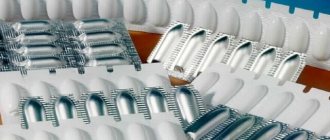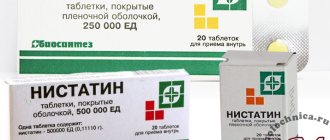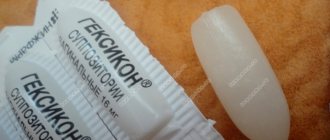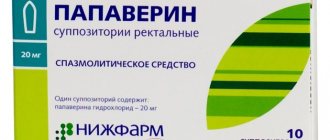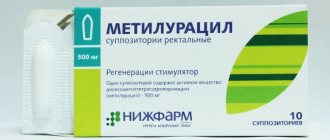As you know, pregnancy is a period when a woman is prohibited from taking most medications, as they can negatively affect the gestation and development of the fetus. However, it is during pregnancy that many ailments begin to appear that a woman has never encountered before. Often, in order to treat diseases, doctors recommend suppositories for pregnant women intended for rectal and vaginal use.
Suppositories during pregnancy: purpose of use
Why are suppositories prescribed to pregnant women? During this period, against the background of hormonal changes, a woman’s immunity decreases, due to which opportunistic microflora, which lives on the mucous membrane of the genital organs and has not made itself felt before, begins to multiply intensively and lead to the development of infectious and inflammatory processes. In addition, such unpleasant phenomena as thrush, constipation and hemorrhoids are a frequent companion of a pregnant woman.
And since during the gestation period, taking most medications is unacceptable due to the risk of pregnancy failure and the development of pathology in the fetus, obstetricians-gynecologists prescribe topical medications - rectal and vaginal suppositories, which are safer for the mother and child. These are the features and advantages of suppositories for pregnant women.
https://youtu.be/peJLw80hcQs
Bloody discharge after Hexicon during pregnancy
If bloody discharge appears during pregnancy after Hexicon suppositories, you must stop treatment and consult a doctor. There may be several reasons for this condition:
- cervical erosion;
- threat of interruption;
- placental abruption.
Pregnant women often show signs of erosion due to hormonal changes. The pathological focus becomes inflamed due to a natural decrease in immunity, and an infection occurs. Suppositories irritate the surface of the exocervix, which leads to the appearance of a small amount of blood. In this case, the drug must be replaced with another.
Chlorhexidine is not capable of leading to a threat of miscarriage or causing placental abruption. But against the background of a genital tract infection, there is a risk of infection of the fetus. Therefore, bloody discharge appears early on, simultaneously with the start of chlorhexidine therapy. This condition is accompanied by additional symptoms. The woman feels a nagging, cramping pain in the abdomen, which can radiate to the sacrum.
Important! If a lot of scarlet blood appears, the child becomes very active, emergency hospitalization is necessary. These may be signs of placental abruption, a condition that threatens the life of the child and mother.
Less commonly, blood on underwear is the result of trauma to the vagina due to careless insertion of a suppository. Inflamed tissues become swollen, and additional blood flow occurs to them. Therefore, even a small wound with a nail will lead to the appearance of red drops. But they will become noticeable a few minutes after inserting the suppository.
Brown discharge after Hexicon during pregnancy
The cause of brown discharge must be determined depending on the period of its appearance. In the first trimester, they are an indicator of detachment of the ovum. But Hexicon is not the provocateur of this condition. It occurs due to embryo pathology. Most often, early miscarriages occur due to infectious causes. Chlorhexidine fights microorganisms, but sometimes they already manage to penetrate the uterus.
To sanitize the vagina before childbirth, Hexicon is prescribed during pregnancy in the 3rd trimester, and the discharge may initially be normal and then turn brown. If a woman has a full-term pregnancy of 38 weeks or more, then mucous with a brown tint is a mucus plug, which indicates the ripening of the cervix and preparation for childbirth.
Sometimes this type of leucorrhoea is an indicator of treatment failure or infection with another pathogen. It is necessary to see a doctor for examination and examination. It is recommended to maintain sexual rest for the entire duration of therapy.
Pink discharge after Hexicon during pregnancy
Not all women tolerate treatment with chlorhexidine. It may cause irritation and an allergic reaction. The following symptoms appear:
- itching and burning in the vagina;
- copious liquid discharge;
- pink tint of leucorrhoea;
- dysuric disorders.
The general condition does not suffer. What to do if you are bothered by pink discharge after Hexicon - consult a doctor and ask for a change in the drug. The uncharacteristic shade is associated with an allergic reaction and the release of blood cells. But sometimes this is an early sign of pathology, which will soon be replaced by blood on underwear.
Yellow discharge after Hexicon during pregnancy
Chlorhexidine is selective and will not help against certain types of microorganisms. Resistant to it:
- acid-fast bacteria;
- pseudomonas;
- Proteus;
- viruses;
- mushrooms.
A yellowish and green tint to the leucorrhoea is an indicator of the ineffectiveness of therapy. What to do if you have yellow discharge after Hexicon - undergo additional examination and change the treatment regimen. Some infections in pregnant women are treated only with oral antibiotics in order to affect all foci in the body and avoid relapse. For example, chlamydia and trichomoniasis can have a chronic course and minimal symptoms. Due to a decrease in local immunity during gestation, pathogens are activated.
Expectant mothers need to prepare for pregnancy in advance. To avoid having to undergo antibiotic treatment, you need to be examined for sexually transmitted infections before conception. This will reduce the risk of infection of the embryo in the first trimester and avoid antibiotic therapy and its consequences. Also, you should not choose medications on your own; only a doctor can compare the benefits and safety and choose a more effective remedy.
Yulia Shevchenko, obstetrician-gynecologist, especially for Mirmam.pro
Suppositories during pregnancy for thrush
Thrush, medically called candidiasis, occurs periodically in most women. It is important to remember that in order to get rid of it, both partners must be treated. To eliminate candidiasis, systemic or local drugs are usually prescribed. The first option involves taking the medicine orally, in which the active substances enter the blood and tissues of the body, which is unacceptable during pregnancy. Therefore, pregnant women are prescribed topical medications, for example, creams, ointments or suppositories, to treat thrush. The latter form is more preferable.
Today, the most effective and at the same time safe drugs for children against thrush are Pimafucin, Clotrimazole and Livarol.
Pimafucin is the most frequently prescribed antifungal drug. Its big advantage is that it can be used throughout the entire gestation period. The active substance, which is natamycin, has a detrimental effect on the fungus without causing harm to the pregnant woman and the fetus. "Pimafucin" is distinguished by its affordable price and the absence of side effects. The disadvantage of the drug is that with severe fungal infection it may be ineffective. The course of treatment ranges from 3 to 9 days.
During pregnancy, doctors often prescribe Clotrimazole vaginal tablets, which have antifungal and antimicrobial effects. Pregnant suppositories "Clotrimazole" are effective for urogenital candidiasis, trichomoniasis, and vulvovaginitis. Treatment with the drug usually lasts 6 days. Although suppositories are allowed during pregnancy, their use in the first trimester is not recommended.
The basis of these vaginal suppositories is ketoconazole, which acts only on the vaginal mucosa, without being absorbed into the bloodstream, that is, it does not harm the pregnant woman and the child. Research shows that Livarol copes with the task much better than Pimafucin. However, it is worth considering that the use of the drug is permissible only in the second and third trimesters. The duration of treatment with Livarol is 3-5 days.
Nuances of treating thrush
The doctor can prescribe the optimal treatment regimen, taking into account the patient’s condition, stage of pregnancy and course of the disease. The course can be one of the following options:
- Betadine (Povidone-iodine, Iodoxin), Sertaconazole, 1 suppository before bedtime for the period prescribed by the doctor;
- Hexicon, Clotrimazole, Polygynax, Terzhinan, Nystatin - choose one of the listed drugs in the amount of 14 suppositories for 1 course of treatment;
- Livarol, Pimafucin, Gyno-Pevaril - you will need to use 3 suppositories of one drug during treatment.
In order for the treatment to have the desired effect, a woman needs to give up synthetic underwear, change the towel for her intimate organs daily, and stop using scented pads.
Macmiror, Pimafucin and Sertaconazole are recognized as the best remedies for thrush. According to studies, they do not give a negative reaction to the fetus, and their short period of recommended use reduces any impact on the functioning of the body as a whole. Among the side effects sometimes noted when using these drugs, the most common are allergic reactions and itching in the vagina.
To reduce the likelihood of adverse reactions, you need to use neutral soap for hygienic purposes. Any of the listed drugs is administered once, a second suppository is administered a week later. This is enough for treatment. The disadvantage is the high cost of the drugs, but the effectiveness justifies the price.
Ketoconazole is not prescribed in the 1st trimester of pregnancy; it is also used with caution in the 2nd and 3rd trimester, since suppositories can cause redness of the mucous membrane and itching in the vagina. They need to be used for 10 days in a row. The advantage of suppositories is the quickly noticeable effect of treatment.
Suppositories during pregnancy for hemorrhoids
Many women face such a nuisance as hemorrhoids during pregnancy. Its appearance is due to the fact that as the fetus grows, the load on the internal organs and blood vessels increases. Today, the choice of rectal suppositories that are allowed during pregnancy is quite large.
“Proctosedyl” is a suppository containing cinchocaine and hydrocortisone. Their use is allowed throughout pregnancy.
"Procto-glivenol" - rectal suppositories containing tribenozide and lidocaine. Approved for use in the second and third trimesters.
"Relief Advance" - rectal suppositories, which are made on the basis of shark liver oil and phenylephrine. The use of the drug is permissible only under strict medical supervision.
"Natalsid" - suppositories containing sodium alginate. Allowed at all stages of pregnancy.
Suppositories during pregnancy for constipation
Many people know that pregnant women experience constipation. The reason for this phenomenon is the lifestyle and physiological changes occurring in the body. The danger of constipation is that if left untreated, it can lead to complications such as hemorrhoids, anal fissures and rectal distension.
Of course, for prevention, a pregnant woman needs to monitor her diet. First of all, it should contain many foods containing fiber. The problem of constipation in pregnant women can only be solved with the help of laxative suppositories, since most medications are banned due to the high risk of harmful effects on the fetus.
When choosing suppositories for pregnant women, preference should be given to suppositories based on glycerin and sea buckthorn oil. Let's consider each of the options in more detail.
Glycerin suppositories for pregnant women
Such suppositories are considered the most common and safe remedy for constipation in pregnant women. The action of suppositories is based on the fact that after their administration, the intestinal mucosa begins to be irritated, the stool softens, and the motility of the lower parts of the gastrointestinal tract is stimulated, followed by emptying of its contents.
The advantage of glycerin suppositories is their local effect, lack of absorption into the bloodstream and harmlessness to the fetus. An additional advantage of the drug is its low cost.
However, it is important to consider that these suppositories have their contraindications. Thus, the use of glycerin suppositories should be avoided in the first trimester and in the last weeks of pregnancy, since their relaxing effect can cause increased uterine tone. If there is a threat of miscarriage, glycerin-based suppositories are prohibited regardless of the period. In addition, administration of the drug is contraindicated for cracks and tumors of the rectum, as well as for hypersensitivity to its components.
Treatment of bacterial infection during pregnancy
During pregnancy, against the background of reduced immunity and colossal hormonal changes, the opportunistic microflora that lives on the female genital organs activates its activity. As a result of its intensive reproduction, inflammatory processes develop. In addition, a woman in this position is much more susceptible to sexually transmitted diseases. Therefore, the appearance of such unpleasant symptoms as itching, burning in the vaginal area, and discharge with an unpleasant odor is a serious reason to urgently consult a doctor. Based on the test results and the diagnosis, the doctor will prescribe appropriate treatment.
Can pregnant women have suppositories if they have an infection? The answer is positive, since antibacterial suppositories are prescribed to eliminate germs in the gynecological area during pregnancy. Such drugs have a bactericidal and bacteriostatic effect on a number of infectious pathogens. Antibacterial suppositories have a detrimental effect on gram-positive and gram-negative bacteria, streptococci, intracellular and anaerobic microorganisms. The active ingredients of suppositories stop the proliferation of bacteria and kill them.
The advantage of antibacterial suppositories during pregnancy is that they act directly on the source of inflammation, without causing damage to the digestive tract and liver. In addition, their use is safe not only for the expectant mother, but also for the fetus. The most commonly used drugs for the treatment of bacterial infections are Hexicon, Betadine and Terzhinan.
As you know, pregnancy is a period when a woman is prohibited from taking most medications, as they can negatively affect the gestation and development of the fetus. However, it is during pregnancy that many ailments begin to appear that a woman has never encountered before. Often, in order to treat diseases, doctors recommend suppositories for pregnant women intended for rectal and vaginal use.
Suppositories during pregnancy: purpose of use
Why are suppositories prescribed to pregnant women? During this period, against the background of hormonal changes, a woman’s immunity decreases, due to which opportunistic microflora, which lives on the mucous membrane of the genital organs and did not make itself felt before, begins to multiply intensively and lead to the development of infectious and inflammatory processes. In addition, such unpleasant phenomena as thrush, constipation and hemorrhoids are a frequent companion of a pregnant woman.
And since during the gestation period, taking most medications is unacceptable due to the risk of pregnancy failure and the development of pathology in the fetus, obstetricians-gynecologists prescribe topical medications - rectal and vaginal suppositories, which are safer for the mother and child. These are the features and advantages of suppositories for pregnant women.
Suppositories during pregnancy for thrush
Thrush, medically called candidiasis, occurs periodically in most women. It is important to remember that in order to get rid of it, both partners must be treated. To eliminate candidiasis, systemic or local drugs are usually prescribed. The first option involves taking medications orally, in which the active substances enter the blood and tissues of the body, which is unacceptable during pregnancy. Therefore, pregnant women are prescribed topical medications, such as creams, ointments or suppositories, to treat thrush. The latter form is more preferable.
Today, the most effective and at the same time safe drugs for children against thrush are Pimafucin, Clotrimazole and Livarol.
Pimafucin suppositories Pimafucin is the most commonly prescribed antifungal drug. Its big advantage is that it can be used throughout the entire gestation period. The active substance, which is natamycin, has a detrimental effect on the fungus without causing harm to the pregnant woman and the fetus. "Pimafucin" is distinguished by its affordable price and the absence of side effects. The disadvantage of the drug is that with severe fungal infection it may be ineffective. The course of treatment ranges from 3 to 9 days. "Clotrimazole" During pregnancy, doctors often prescribe vaginal tablets "Clotrimazole", which have antifungal and antimicrobial effects. Pregnant suppositories "Clotrimazole" are effective for urogenital candidiasis, trichomoniasis, and vulvovaginitis. Treatment with the drug usually lasts 6 days. Although suppositories are possible during pregnancy, they are not recommended in the first trimester of pregnancy.
“Livarol” The basis of these vaginal suppositories is ketoconazole, which acts only on the vaginal mucosa, without being absorbed into the blood, that is, it does not harm the pregnant woman and the child. Research shows that Livarol copes with the task much better than Pimafucin. However, it is worth considering that the use of the drug is possible only in the second and third trimesters. The duration of treatment with Livarol is 3-5 days.
Suppositories during pregnancy for hemorrhoids
Many women face such a nuisance as hemorrhoids during pregnancy. Its appearance is due to the fact that as the fetus grows, the load on the internal organs and blood vessels increases. Today, the choice of rectal suppositories that are allowed during pregnancy is quite large. “Proctosedyl” is a suppository containing cinchocaine and hydrocortisone. Their use is allowed throughout pregnancy. "Procto-glivenol" - rectal suppositories containing tribenozide and lidocaine. Approved for use in the second and third trimesters. "Relief Advance" - rectal suppositories, which are made on the basis of shark liver oil and phenylephrine. The use of the drug is permissible only under strict medical supervision. "Natalsid" - suppositories containing sodium alginate. Possible at all stages of pregnancy.
Suppositories during pregnancy for constipation
Many people know that pregnant women experience constipation. The reason for this phenomenon is the lifestyle and physiological changes occurring in the body. The danger of constipation is that if left untreated, it can lead to complications such as hemorrhoids, anal fissures and rectal distension. Of course, for prevention, a pregnant woman needs to monitor her diet. First of all, it should be rich in fiber-containing foods. The problem of constipation in pregnant women can only be solved with the help of laxative suppositories, since most medications are prohibited due to the high risk of harmful effects on the fetus.
When choosing suppositories for pregnant women, preference should be given to suppositories based on glycerin and sea buckthorn oil. Let's consider each of the options in more detail.
Glycerin suppositories for pregnant women
Such suppositories are considered the most common and safe remedy for constipation in pregnant women. The action of suppositories is based on the fact that after their administration, the intestinal mucosa begins to be irritated, the stool softens, and the motility of the lower gastrointestinal tract is stimulated, followed by emptying of the contents. The advantage of glycerin suppositories is their local effect, lack of absorption into the blood and harmlessness to the fetus. An additional advantage of the drug is its low cost. However, it is important to consider that these suppositories have their contraindications. Thus, the use of glycerin suppositories should be avoided in the first trimester and in the last weeks of pregnancy, since their relaxing effect can cause increased uterine tone. If there is a threat of miscarriage, glycerin-based suppositories are prohibited regardless of the period. In addition, administration of the drug is contraindicated for cracks and tumors of the rectum, as well as for hypersensitivity to its components.
Sea buckthorn candles
Sea buckthorn oil has long been known for its regenerating, antibacterial and antiviral properties, due to which it has been successfully used to treat many diseases. Affordable price, safety and effectiveness for constipation in pregnant women ensure that sea buckthorn suppositories are actively used in the treatment of hemorrhoids, ulcers, anal fissures, inflammatory processes in the vagina, and thrush. Since the only contraindication to the use of suppositories based on sea buckthorn oil is individual intolerance to the active ingredients, this allows them to be used to eliminate constipation, which is accompanied by hemorrhoids. It is also necessary to take into account that sea buckthorn suppositories have a slight laxative effect, so they should not be considered as an effective remedy for constipation. The peculiarity of the drug is that it can be used when other means that can cause even greater harm are prohibited. Excellent wound healing properties coupled with a mild laxative effect make sea buckthorn suppositories indispensable for hemorrhoids caused by constipation.
Treatment of bacterial infection during pregnancy
During pregnancy, against the background of reduced immunity and colossal hormonal changes, the opportunistic microflora that lives on the female genital organs activates its activity. As a result of intensive reproduction, inflammatory processes develop. In addition, a woman in this position is much more prone to sexually transmitted diseases. Therefore, the appearance of such unpleasant symptoms as itching, burning in the vaginal area, and discharge with an unpleasant odor is a serious reason to urgently consult a doctor. Based on the test results and the diagnosis, the doctor will prescribe appropriate treatment. Can pregnant women have suppositories if they have an infection? The answer is positive, since antibacterial suppositories are prescribed to eliminate germs in the gynecological area during pregnancy. Such drugs have a bactericidal and bacteriostatic effect on a number of infectious pathogens. Antibacterial suppositories have a detrimental effect on gram-positive and gram-negative bacteria, streptococci, intracellular and anaerobic microorganisms. The active ingredients of suppositories stop the proliferation of bacteria and kill them. The advantage of antibacterial suppositories during pregnancy is that they act directly on the source of inflammation without harming the digestive tract and liver. In addition, their use is safe not only for the expectant mother, but also for the fetus. The most commonly used drugs for the treatment of bacterial infections are Hexicon, Betadine and Terzhinan.
Candles "Hexicon"
The suppositories contain chlorhexidine. Prescribing the drug is advisable for ureaplasmosis, chlamydia, syphilis, gonorrhea, vaginitis, endo- and exocervicitis, as well as for the prevention of postpartum complications of an infectious and inflammatory nature. "Hexicon" is absolutely safe for a pregnant woman and child, since it has low absorption and acts exclusively on the vaginal mucosa. The disadvantages of the drug include individual intolerance to its components.
"Betadine" - a powerful remedy against infections
A special feature of the drug is that it effectively fights not only viruses and bacteria, but also fungi. "Betadine" shows good results in the treatment of infectious and fungal diseases such as thrush, acute and chronic vaginitis, bacterial vaginosis, trichomoniasis, genital herpes. Betadine suppositories are prescribed to pregnant women because of their safety for the fetus. The main active ingredient of the drug is iodine, so there are no allergies or side effects after its administration. Suppositories have a local effect and are practically not absorbed into the blood, which allows them to be used even in the first trimester, unlike most others, which are prohibited in the early stages of pregnancy. The use of Betadine at a later date should be agreed with a doctor and under his supervision.
"Terzhinan" to combat bacterial infection
Most often, gynecologists prescribe Terzhinan suppositories for the treatment of bacterial infections in pregnant women. This drug is a combination drug and has not only an antibacterial effect, but also an antifungal one. Thanks to these properties, Terzhinan is used to treat vaginitis of various etiologies, candidiasis, trichomoniasis, and bacterial vaginosis. In addition, suppositories are prescribed to the expectant mother to sanitize the vagina before childbirth in order to avoid purulent-inflammatory complications. The drug in question has a direct effect on viruses and bacteria located in the vagina and is not absorbed into the systemic bloodstream. Since the components of Terzhinan do not harm the fetus, the drug is allowed to be used during pregnancy. However, the manufacturer warns that the use of these suppositories is contraindicated in the first trimester. Also, “Terzhinan” is not recommended for those with individual intolerance to the components.
Viferon suppositories to strengthen the immune system of a pregnant woman
During pregnancy, the female body experiences enormous stress. Because of this, the immune system is the first to suffer. As a result, the body becomes vulnerable to various viruses and infections. Since taking potent drugs during pregnancy is prohibited, treatment during this period should be approached responsibly so as not to harm the health of the unborn baby. Such medicines include “Viferon” (suppositories). For pregnant women, the drug is good because it acts directly on the source of infection, while simultaneously activating the body’s natural protective functions.
Viferon contains human interferon, which has a pronounced anti-inflammatory and antiviral effect.
Doctors recommend Viferon (suppositories) for pregnant women with colds, flu, herpetic infections, chronic respiratory diseases, cytomegalovirus, chlamydia, trichomoniasis, ureaplasmosis and HPV. In addition to medicinal purposes, Viferon is prescribed for the prevention of diseases, since its use helps to increase the protective functions of the body. This is especially true for expectant mothers who do not produce enough interferon. Therefore, the answer to the question: “Can Viferon (suppositories) be used for pregnant women?” is quite clear. The advantage of the drug in the form of suppositories is its faster action. The active substances are immediately absorbed into the blood and begin to have a positive effect. As you can see, pregnancy suppositories, if you follow the manufacturer's instructions, are a safe remedy for the mother and her unborn child. However, it must be borne in mind that self-administration of medications during pregnancy is unacceptable. Which suppositories can be used for pregnant women should be determined by a doctor who can determine the true cause and type of the disease based on examination and laboratory diagnostics. Otherwise, the disease will not only not be cured, but will intensify even more.
Candles "Hexicon"
The suppositories contain chlorhexidine. Prescribing the drug is advisable for ureaplasmosis, chlamydia, syphilis, gonorrhea, vaginitis, endo- and exocervicitis, as well as for the prevention of postpartum complications of an infectious and inflammatory nature. "Hexicon" is absolutely safe for a pregnant woman and child, since it has low absorption and acts exclusively on the vaginal mucosa. The disadvantages of the drug include individual intolerance to its components.
"Betadine" - a powerful remedy against infections
A special feature of the drug is that it effectively fights not only viruses and bacteria, but also fungi. "Betadine" shows good results in the treatment of infectious and fungal diseases such as thrush, acute and chronic vaginitis, bacterial vaginosis, trichomoniasis, genital herpes.
Betadine suppositories are prescribed to pregnant women because of their safety for the fetus. The main active ingredient of the drug is iodine, so there are no allergies or side effects after its administration. Suppositories have a local effect and are practically not absorbed into the blood, which allows them to be used even in the first trimester, unlike most others, which are prohibited in the early stages of pregnancy. The use of Betadine at a later date should be agreed with a doctor and occur under his supervision.
Features and benefits of suppositories for pregnant women
In normal conditions, when a woman is not expecting a child, chronic thrush is most often treated with capsules and tablets. They penetrate the blood, affecting tissue and fungi from the inside. This method is quite effective, but the drugs are toxic and therefore their use is unacceptable during pregnancy.
To protect the unborn child and maintain his health, a woman is recommended to use suppositories for thrush during pregnancy.
This type of medicine is also commonly called vaginal suppositories. The advantage of such drugs is the peculiarities of their effects. The effect on the fungus is local, so the risk of side effects is reduced. And this is not the only advantage of drugs of this type:
- vaginal suppositories have a special sliding shape, which facilitates the process of insertion into the vagina. The soft base enhances comfort;
- the medicine is evenly distributed throughout the mucous membrane, as it dissolves easily;
- suppositories are practically not absorbed into the blood. This allows you to protect your baby from harmful influences.
The above properties make vaginal suppositories the only acceptable option. How should such drugs be used? Let's look at this below.
"Terzhinan" to combat bacterial infection
Often, gynecologists prescribe Terzhinan suppositories to treat bacterial infections in pregnant women. This drug is a combination drug and has not only an antibacterial effect, but also an antifungal one. Thanks to these properties, Terzhinan is used to treat vaginitis of various etiologies, candidiasis, trichomoniasis, and bacterial vaginosis. In addition, suppositories are prescribed to the expectant mother for sanitization of the vagina before childbirth in order to avoid purulent-inflammatory complications. The drug in question has a direct effect on viruses and bacteria located in the vagina and is not absorbed into the systemic bloodstream.
Even more interesting:
What are sores on the back of the throat?
Egg for herpes
Since the components of Terzhinan do not harm the fetus, the drug is allowed to be used during pregnancy. However, the manufacturer warns that the use of these suppositories is contraindicated in the first trimester. Also, “Terzhinan” is not recommended for those with individual intolerance to the components.
Viferon suppositories to strengthen the immune system of a pregnant woman
During pregnancy, the female body experiences enormous stress. Because of this, the immune system is the first to suffer. As a result, the body becomes vulnerable to various viruses and infections. Since taking potent drugs during pregnancy is prohibited, treatment during this period should be approached responsibly so as not to harm the health of the unborn baby. Such medicines include “Viferon” (suppositories).
For pregnant women, the drug is good because it acts directly on the source of infection, while simultaneously activating the body’s natural protective functions. Viferon contains human interferon, which has a pronounced anti-inflammatory and antiviral effect.
Doctors recommend Viferon (suppositories) for pregnant women with colds, flu, herpetic infections, chronic respiratory diseases, cytomegalovirus, chlamydia, trichomoniasis, ureaplasmosis and HPV.
In addition to medicinal purposes, Viferon is prescribed for the prevention of diseases, since its use helps to increase the protective functions of the body. This is especially true for expectant mothers who do not produce enough interferon. Therefore, the answer to the question: “Can Viferon (suppositories) be taken by pregnant women?” is very clear. The advantage of the drug in the form of suppositories is its faster action. The active substances are immediately absorbed into the blood and begin to have a positive effect.
As you can see, pregnancy suppositories, if you follow the manufacturer's instructions, are a safe remedy for the mother and her unborn child. However, it must be borne in mind that self-administration of medications during pregnancy is unacceptable. Which suppositories can be used for pregnant women should be determined by a doctor who can determine the true cause and type of the disease based on examination and laboratory diagnostics. Otherwise, the disease will not only not be cured, but will worsen even more.
Treatment methods
Therapy tactics are aimed at eliminating the pathogen that caused its appearance. In addition, methods and medications are selected to help reduce its intensity or completely eliminate it.
Depending on the factor, antifungal, antibacterial, anti-inflammatory and immunomodulators are prescribed. In addition, medications can be used to treat endocrine, somatic and other extragenital pathologies. How to relieve intimate itching during pregnancy must be checked with your doctor.
Pills
Tablets for women are selected taking into account the reason that provoked its occurrence.
For trichomoniasis, Trichopolum may be prescribed. It is possible to eliminate allergic reactions and cope with unpleasant symptoms thanks to Claritin and Suprastin.
Treatment of intimate itching during pregnancy due to Gardnerella is carried out with the use of Metronidazole. Herpevir and Acyclovir help cure herpes.
If cystitis is the trigger for the burning sensation, then specialists select antibacterial agents. Women are prescribed ciprofloxacin and its derivatives. The course is at least 7 days and it is strictly forbidden to interrupt therapy on your own.
The expectant mother is given ineffective Pimafucin and Nystatin, which are considered safe for the fetus. It is strictly forbidden to take Diflucan, Levorin and Nizoral in tablet form.
Candles
To relieve itching in the intimate area, medications in the form of suppositories are recommended.
- Livarol. In a short time, it relieves discomfort by normalizing the microflora and destroying fungi of the genus Candida.
- Clotrimazole. The drug quickly destroys pathogenic microflora. Clotrimazole is also available in the form of tablets, ointments and solutions.
- Hexicon. Suppositories help not only destroy fungal pathogens, but also cope with sexually transmitted infections. It is often prescribed to women to cleanse the birth canal before childbirth.
Ointments
Medicines in the form of ointments can eliminate unpleasant symptoms. However, pregnant women are allowed to use them only after consulting a doctor.
The action of certain medications is aimed at eliminating unpleasant sensations in the vagina.
- Vagical. It is based on calendula extract. The suspension helps stop the inflammatory process, destroy fungus and speed up the healing of cracks.
- Pimafucin. The medicine is used to treat pathologies caused by fungi. Pimafucin eliminates unpleasant symptoms in a short time and has a mild therapeutic effect.
- Vagisil. As a result of its use, water balance is restored and elasticity increases.
- Lactacid. The medication contains lactic acid. It helps maintain water balance, restores microflora and eliminates dryness.
In the absence of alarming symptoms, it is allowed to treat irritation in the intimate area at home independently, but after prior consultation with a doctor.
Washing
If there is severe discomfort in the perineal area, you can use decoctions of medicinal herbs such as string, calamus, chamomile, elecampane and others.
To eliminate discomfort in the vulva area, it is necessary to wipe the genitals with a solution of 2% salicylic alcohol. It is considered a strong antiseptic and quickly stops the inflammatory process.
Douching
You can get rid of burning sensation in the vagina during pregnancy by douching with water and soda. To prepare the medicine, you need to dissolve a tablespoon of powder in a liter of liquid. Stir well and inject the solution into the vagina 2 times a day for a week.
To reduce pain around the genitals, you can take baths with herbal solutions that have healing effects. It is recommended to prepare decoctions of calendula and chamomile by steaming dry raw materials with boiling water.
Treatment of intimate itching during pregnancy is carried out with the help of aloe. You need to grind the leaves in a meat grinder and soak cotton swabs in the resulting pulp. They should be inserted at night.
For douching, you can prepare a product from 1 teaspoon of soda, the same amount of soda and 10 drops of iodine. All components must be dissolved in 1 liter of boiled water and douched with the prepared solution 2 times a day. This procedure helps to wash away fungi, dry the mucous membrane and disinfect it.
Causes of thrush during pregnancy
Thrush or vaginal candidiasis is an inflammation of the vaginal mucosa that occurs when the immune system is weakened. The causative agent of the disease is a pathogenic fungus of the genus Candida, which actively reproduces in the genital tract. Thrush is not considered a serious and dangerous disease requiring immediate treatment. Therefore, young mothers should not grab all possible medications to quickly get rid of the infection. But the disease should not be neglected either, otherwise complications may arise during pregnancy.
Candida fungus is spread through sexual contact and pregnant women usually become infected from a sexual partner. Men most often do not even realize that they are carriers of pathogens. Vaginal candidiasis is diagnosed mainly during pregnancy, since expectant mothers have significantly weakened immunity. A fungus that reproduces unhindered when the immune system is poorly functioning provokes the appearance of other pathogenic microflora, usually bacteria of the Mycoplasma class. It is strictly prohibited to treat the infection with tablets and injections during pregnancy, so doctors prescribe suppositories for thrush during pregnancy. Suppositories do not have a negative effect on the embryo.
How to use it correctly during pregnancy
The choice of drug depends on the causative agent of this pathology and its response to treatment. Activation of thrush is possible against the background of chronic ureaplasmosis, chlamydia, urethritis.
An equally important note is that men should also treat candidiasis. This is all the more important because in men the disease can occur without symptoms. During treatment, you must completely abstain from sexual intercourse.
At any stage of pregnancy, a woman should administer the drug at night. Less often this is done in the morning. The suppository is inserted into the vagina as deeply as possible. To protect your laundry from leaking, you need to use a sanitary pad.
The course of treatment is up to 10 days, depending on the health status of the pregnant woman. Some suppositories help get rid of the symptoms of thrush within a few days, but this does not mean that treatment should be stopped at this stage. Untreated thrush is dangerous because it can become chronic.
Features of the use of suppositories for thrush during pregnancy
Typically, vaginal candidiasis is treated with antifungal and antibacterial drugs, but they should not be used while pregnant. When a person takes antibiotics orally, the active components of the drug enter the digestive tract, are absorbed into the blood vessels of the intestine, and are sent along with the blood to diseased tissues. But the circulatory systems of the mother and fetus are closely connected, the active substances of antibiotic medications inevitably penetrate the placenta, sometimes causing serious developmental disorders in the embryo. Therefore, taking antibiotics in tablet form during pregnancy is prohibited; it is especially dangerous to do this in the first trimester of pregnancy.
Suppositories for thrush during pregnancy are the only acceptable method of treatment. When using suppositories, the active components of the medicine do not enter the circulatory system and do not have any effect on the body of the child developing in the stomach. Positive reviews from young mothers prove that suppositories for thrush during pregnancy have no side effects and act well and quickly. Suppositories can be used without fear both in the first and last trimester of pregnancy. But it is advisable for pregnant women to purchase suppositories for thrush after consultation with their doctor, because it is unknown how the female body can react to strong antibiotic substances.
Inexpensive medicines for thrush
Many expectant mothers are interested in which suppositories for thrush are the cheapest. There are medications whose cost is several times lower than the drugs listed above. These are Hexicon, Dactanol, Clotrimazole. They can be used at the first symptoms of thrush, and Hexicon is prescribed to prevent candidiasis.
Considering that the listed drugs appeared on the medical market not so long ago, their effect on the body of the mother and child has not been fully studied.
If a pregnant woman has advanced or chronic fungus, it is better to give preference to proven drugs, even if they are more expensive.
Doctors often prescribe Nystatin and Ketocanazole, but there are more modern drugs that are much more effective and have no side effects. Moreover, good drugs contain probiotics that can normalize the microflora in the vagina. Cheap drugs do not contain probiotics. Many of the cheap suppositories for fungus have contraindications during pregnancy, so you should carefully read the instructions for the drug.
The best suppositories for thrush during pregnancy
In pharmacies you can find suppositories for thrush during pregnancy for every taste and budget. Both expensive and cheap suppositories are sold, and the quality and effectiveness of the medicine does not depend on the price. Some inexpensive suppositories help cope with vaginal candidiasis better and faster than advertised analogues with frightening price tags. Expectant mothers should not purchase suppositories at their own discretion; it is better to entrust the choice of medication to a gynecologist. Antibiotic suppositories based on ketoconazole, clotrimazole, nystatin, as well as a complex of the above antifungal substances are considered the most effective. Almost all suppositories can be used in the third trimester of pregnancy, some - at earlier stages of pregnancy. So, what suppositories can be used during pregnancy for thrush? The following describes what suppositories you can use during pregnancy for thrush:
- Pimafucin . Pimafucin is the leader in popularity and frequency of use among all medications for thrush. It is this drug that pregnant women purchase most often, since it has a low price, but at the same time effectively destroys fungal infections. The active substance is the polyene antibiotic natamycin, which kills the fungus without harming the embryo in the womb. There are no contraindications for suppositories. The medicine is injected into the vagina once a day in the evening before bed, the course of treatment is 3 to 6 days. Price – 250 – 275 rubles.
- Terzhinan . The drug is not available in the form of suppositories, but in the form of vaginal tablets. The drug combines well with other medications, so it can be used for complex therapy of thrush. Terzhinan tablets have no side effects, but they are not recommended for use in the first trimester of pregnancy. The course of treatment is 10 days. Before insertion into the vagina, the tablet should be immersed in water for half a minute. Price – 320 – 575 rubles.
- Polygynax . Polygynax - highly effective vaginal capsules, recommended for use during pregnancy, consisting of neomycin, polymyxin, nystatin. The antibiotic drug destroys pathogenic bacteria that multiply in the vagina after candidiasis occurs. Polygynax capsules help restore the mucous membranes of the genital tract and relieve inflammation. There are no side effects when using the medicine. The capsule is immersed deep into the vagina in the evening before bed. The course of treatment is 12 days. Price – 305 – 775 rubles.
- Clotrimazole . Clotrimazole is an inexpensive and high-quality suppository used for thrush during pregnancy. These suppositories can successfully treat not only candidiasis, but also trichomoniasis. The medicine can be used in the second and third trimester of gestation, but is strictly prohibited for use in the early stages of pregnancy. The suppositories contain substances that can negatively affect the embryo in the initial stages of development. The therapeutic course lasts a week. It should be noted that the Candida fungus quickly gets used to the antibiotic, so if the disease recurs, you need to use other drugs. Price – 15 – 215 rubles.
- Livarol . Livarol is a highly effective suppository for thrush during pregnancy. The medicine is used in the later stages of pregnancy, but it is strictly forbidden to use it during the first trimester of pregnancy. The active substance is ketoconazole. Suppositories are inserted into the vagina in the evening before bedtime. The course of treatment is no more than 5 days. In the morning after using the drug, many women experience liquid discharge from the genital tract. There is no need to worry: polyethylene oxide, an auxiliary component of the drug, comes out. Price – 405 – 790 rubles.
- Hexicon. The drug is a suppository that is used to treat thrush. The product can be used throughout the entire period of bearing a child, as well as during breastfeeding. Hexicon acts locally, which prevents it from penetrating into the blood. Many patients are prescribed suppositories immediately before childbirth. This ensures effective prevention of infectious diseases and complications after the birth of the baby. The course of treatment is 10 days. Suppositories are inserted into the vagina. The frequency of use is no more than twice a day, but the prescription must be carried out by a doctor. Some patients experience severe itching after starting therapy, but very little time passes and the discomfort disappears. The pricing policy in Moscow and St. Petersburg is approximately 270 rubles.
- Fluconazole. Expectant mothers on forums claim that Fluconazole is an effective drug for combating thrush. However, this remedy is not recommended for use during the first trimester of pregnancy. If you ignore the warnings, you can harm your baby. According to foreign studies, those women who used Fluconazole during early pregnancy exposed their child to significant risk, since the drug contributes to the formation of a complex type of congenital heart defect in the baby. And when using the medication during the third trimester (400-800 mg/day), in rare cases, doctors diagnosed brachycephaly, cleft palate, abnormal facies, pathologies of the development of the cranial vault, etc. Taking Fluconazole 150 mg once is considered the safest for mothers and babies. But doctors rarely prescribe the drug to avoid side effects, so the use of Floconazole to combat thrush becomes feasible only after the baby is born and breastfeeding ends. The use of Flucostat to eliminate thrush is also undesirable. The main active ingredient in this drug is also fluconazole. There is evidence that the drug can cause deformities and have a toxic effect on the baby in the womb. Gynecologists can prescribe this medicine only to those women whose thrush has affected important organs.
The best suppositories for the treatment of candidiasis in pregnant women
The pharmacological market has a sufficient number of safe options.
Let's look at effective suppositories for thrush during pregnancy:
- Gynoflor.
- Pimafucin.
- Polygynax.
Gynoflor
Gynoflor vaginal tablets are an effective local remedy in the fight against mild to moderate thrush. The lactobacilli they contain normalize the vaginal biocenosis and synthesize lactic acid, which equalizes the pH and protects the mucous membrane from the effects of pathogenic microorganisms, including yeast-like fungi.
The drug also contains estriol, a synthetic analogue of female sex hormones. It has a stimulating effect on the vaginal epithelium, accelerating the growth and reproduction of its cells. As a result, the mature epithelial membrane becomes a good barrier to various types of infections.
As a local therapy for thrush, 1 or 2 suppositories are prescribed once a day, preferably before bedtime, which must first be dipped in water for 5-10 seconds. The optimal duration of therapy is from 6 to 12 days. Adverse reactions are extremely rare and can manifest themselves in discomfort after administration of the drug, a burning sensation and allergic reactions.
Gynoflor is contraindicated in case of intolerance to the substances of the drug, in the presence of vaginal or uterine bleeding, malignant neoplasms that produce estrogens and endometriosis.
The drug is available in pharmacy chains with an average cost of 900-1000 rubles.
Pimafucin
Pimafucin suppositories are also effective in the treatment of urogenital candidiasis and are allowed in any trimester of pregnancy and lactation. The drug has a detrimental effect on fungi due to the natamycin contained in it. It inhibits the bioproduction of ergosterols, which are necessary for the normal construction of the cell membrane of fungal cells. As a result, the pathogen stops its growth and is destroyed.
Pimafucin acts only locally, practically not being absorbed into the systemic circulation. Available in the form of tablets, suppositories and creams, vaginal suppositories are the form of choice for treating thrush in pregnant women.
They are prescribed one at a time, 1 time per day at night, and should be administered in a lying position. The average duration of the therapeutic course is from 3 to 6 days. After all symptoms disappear, it is recommended to continue administering the drug for at least another 2-3 days.
After topical use of natamycin, short-term itching and discomfort in the genital area may occur. It is not prescribed to women with hypersensitivity to the components of the drug.
The average price is in the range of 300-350 rubles.
Polygynax
Intravaginal suppositories Polygynax are classified as combined local medications.
Due to the presence of an antibiotic, antifungal substance and hormone in them, they are used in the treatment of inflammatory diseases of the female reproductive system of various origins and as a prevention of infection during minor surgical interventions in gynecology and obstetrics.
It is necessary to administer one suppository before bedtime for 6-12 days. Contraindications include only allergic reactions to active substances or their combination.
You can buy Terzhinan suppositories in almost every pharmacy; the price varies from 300 to 400 rubles per package.
Traditional medicine recipes
Quite often you can hear from expectant mothers that they use traditional methods to eliminate thrush, which women consider safe for the child. But pregnant women should be aware of full responsibility for their actions, and also remember that the use of safe medications while carrying a child will not harm him. But traditional methods may only be appropriate in combination with medications. Naturally, they are unlikely to cope with the infectious nature of the disease, but they will perfectly eliminate unpleasant symptoms (burning, itching). Complete refusal of traditional drug treatment can harm the baby.
Using baking soda to eliminate thrush is a popular alternative to medications. Soda solution can be used for douching and washing. To prepare the solution you will need a tablespoon of soda per liter of boiled water. The liquid should be warm, but not hot. After douching, tablets or suppositories for thrush during pregnancy, prescribed by the doctor, are inserted into the vagina. The course of soda douching is from 5 to 7 days. Soda baths can be used: per liter of liquid you need a tablespoon of soda and the same amount of iodine. The expectant mother needs to stay in sitz baths for 15 minutes.
You can also douche using other natural antiseptics:
- Garlic, onion. To prepare a garlic bath, you need to boil a head of garlic in a liter of water in combination with 1 tbsp. daisies.
- Tea tree oil. For douching you will need a small syringe, which you need to fill with calendula oil and add 1-2 drops of tea tree oil to it.
As you know, while expecting a child, a woman is not recommended to take medications, as they can adversely affect the course of pregnancy and the development of the fetus. However, a pregnant woman is more susceptible to various diseases than others, which is explained by both her weakened immune system and hormonal changes in her body. Some diseases can be successfully treated with vaginal and rectal suppositories, which is often a real salvation for the expectant mother. Let's look at what suppositories exist for pregnant women to treat the most common diseases.
Treatment of thrush at different stages of pregnancy
Suppositories for thrush during pregnancy can be taken both in the later stages and in the early stages. Let's look at all the drugs in more detail and what suppositories can be given to pregnant women for thrush at one stage or another.
Clotrimazole
Taken in the form of vaginal tablets. Allowed in all trimesters of pregnancy except the first, but not suitable for all women. That is why before purchasing the drug you should undergo an examination by a gynecologist.
Treatment is carried out within a week.
The drug is inserted deep into the vagina without the help of an applicator. If in the first few days a woman experiences burning and itching, the drug should be discontinued, as there is a high probability of an allergic reaction. Side effects may also include urinating more frequently than usual.
Terzhinan is a vaginal suppository, the use of which is allowed from the second trimester of pregnancy.
However, if it is assumed that the benefit outweighs the risk to the unborn child, the drug is prescribed in the first trimester.
Bouchard-Recordati, the French laboratory that produces the drug, is reassuring women that the drug is safe. However, the US FDA says there is still a potential risk.
One of the components of the drug - prednisolone - makes local immunity weaker.
The course of treatment varies from 10 days to 2 weeks. Before inserting the suppository into the vagina, it must be lowered into the insertion for 30 seconds. The itching and burning disappear within a few days.
This drug is approved in the first trimester. If a pregnant woman is not allergic to iodine and the functions of the thyroid gland are not impaired, then she can safely use suppositories during pregnancy for thrush. The course of treatment is one week.
In the second trimester, the use of the drug is highly not recommended, since the active substances penetrate the placental barrier. This, in turn, provokes malfunctions of the thyroid gland.
The use of the drug is permissible in the second and third semester of pregnancy under the supervision of a gynecologist.
The active component is Ketoconazole, which acts on the vulva and vagina and bypasses the bloodstream. This makes it safe for the woman’s body and her unborn child.
The St. Petersburg Mycological Clinic conducted studies that found that recovery occurs in 96% of cases.
The results were obtained after examining 50 patients, each of whom completed a course consisting of 5 vaginal suppositories.
Drugs contraindicated for use
Among the drugs for thrush, there are also those that cannot be used in any trimester. One such medicine is Fluconazole. This drug is especially dangerous in the first trimester of pregnancy, as it can negatively affect the development of the fetus.
Foreign medical studies show that taking Fluconazole in the first weeks, when the organs of the unborn child are just developing, leads to tetralogy of Fallot. This is a congenital heart defect that has a complex shape. Use of the drug in the third trimester can lead to the following consequences:
- cleft palate;
- violations of the formation of the cranial vault;
- arthrogryposis;
- brachycephaly.
The only safe method of use is a single dose of 150 mg. However, this can be done in case of emergency.
Important! Flucostat is also a prohibited drug. The reason is simple - it contains the same component as Fluconazole.
What is cervical endometriosis?
How and with what do you do douching for thrush at home yourself?
Treatment of endometriosis
to the article “Which suppositories are best to treat thrush during pregnancy? »
During pregnancy, especially in the first trimester, it is generally not recommended to take any medications. But if you notice the first signs of thrush, it is better to immediately consult a doctor and not self-medicate
During pregnancy, the doctor prescribed me Terzhinan, I took the course and after repeated tests everything was normal. I believe that if the risk of taking the drug is justified, then thrush should be treated. I didn’t have any consequences after treating thrush.
When I became pregnant, I developed severe thrush. I was prescribed Betadine suppositories. The thrush went away and never happened again (7 years have already passed since then), although before that I was often treated for it and thought that I already had it chronically. This did not affect the child in any way; he was born healthy.
Add a comment Cancel reply
This site provides comprehensive information about various diseases and possible complications, their diagnosis, treatment and prevention.
All information on the site is provided for informational purposes only. Don't self-medicate! At the first signs of illness, consult a specialist!
When using information from the site, an active link is required!
Vaginal suppositories for pregnant women
As a result of decreased immunity, the activity of opportunistic microflora that constantly lives on a woman’s genitals increases. It begins to multiply intensively and causes the development of inflammatory processes. In addition, a pregnant woman is more susceptible to contracting sexually transmitted diseases. If any unpleasant symptoms appear, such as itching, burning in the genital area, or vaginal discharge with an unpleasant odor, you should immediately consult a doctor. After conducting the necessary tests, the specialist will prescribe treatment.
Hexicon
What suppositories can be used during pregnancy to treat bacterial infections? One of the most popular suppositories for pregnant women in antibacterial therapy are Hexicon suppositories. The drug is prescribed for trichomoniasis, gardnerellosis, gonorrhea, ureaplasmosis, chlamydia, syphilis, herpes simplex types I and II.
Hexicon is prescribed for the treatment of vaginitis, colpitis, and endocervicitis. The product is also used for the prevention of diseases, before therapeutic and diagnostic procedures and childbirth. Hexicon suppositories are inserted into the vagina in the morning and evening, 1 pc. for 7-10 days (the course of treatment is determined by the doctor). A contraindication to this medicine is individual intolerance to its components.
Terzhinan
Terzhinan is often the drug of choice for suppositories for pregnant women in the treatment of bacterial infections. It is effective against many types of infections, including staphylococcal, streptococcal, fungal and trichomonas. It is used in the treatment of vaginosis, vaginitis and colpitis caused by various pathogenic microorganisms. A contraindication to this medicine is individual intolerance to its components. The course of treatment with Terzhinan is determined by the doctor.
Candles for thrush
A frequent companion to pregnancy is thrush (candidiasis). Some women first discover this unpleasant disease while expecting a child. What kind of suppositories can you use for thrush during pregnancy? Here is a list of the most commonly prescribed suppositories for pregnant women against candidiasis:
- Pimafucin - can be used throughout pregnancy;
- Livarol - in the 1st trimester, use is prohibited, in the 2nd and 3rd - only under the supervision of a doctor;
- Macmiror complex - used in all trimesters;
- Ginesol - used with caution in the 2nd and 3rd trimesters;
- Primafungin - allowed during pregnancy.
Any of the drugs should be used by the expectant mother only after a doctor’s prescription.
Which suppositories for thrush are not recommended for pregnant women?
Primary attention should be paid to the active substance (indicated on the packaging or in the instructions), since trade names differ in different countries.
Especially for expectant mothers, we present a list of antimycotics, the use of which can negatively affect the child’s health :
- miconazole;
- nystatin;
- fenticonazole;
- fluconazole;
- ciprofloxacin.
Most questions arise regarding suppositories with nystatin for thrush. During pregnancy (especially in the early stages), any drug is chosen extremely carefully, weighing all the risks. This particular active component, firstly, is considered ineffective and outdated, and secondly, there is no evidence base regarding its effect on the fetus. But since suppositories are minimally absorbed and do not accumulate, they are still sometimes prescribed in the 2nd and 3rd trimester under the responsibility of the doctor. Typical regimen: administered intravaginally in the morning and evening, course – two weeks.
The main advantage is that the drug is inexpensive ($0.8-1 per pack of 10 pieces).
A relatively safe and effective alternative is combination medications, for example, Macmiror complex.
Pharmaceutical manufacturers warn: therapy with Ginesol 7, Gino-pevaril, Chlorhexidine, iodine preparations and Metronidazole is allowed with caution
- Ginesol 7
The active ingredient, miconazole nitrate, has an antibacterial and antifungal effect. It is prescribed for candidiasis, combined and secondary infections caused by gram-positive bacteria.
Pros: in most cases, quickly relieves unpleasant manifestations of the disease (itching, burning); does not dry out the mucous membrane; convenient to install using the applicator; the packaging is designed for the average duration of therapy.
Cons: relatively high cost ($6); in advanced cases it does not have the desired effect.
Directions for use: Ginezol 7 is allowed from the 2nd trimester, but only in consultation with a gynecologist. Suppositories are placed at night, one at a time during the week.
- Metronidazole
The active substance corresponds to the name and is characterized by antiprotozoal and antibacterial effects. Recommended for mixed complicated infections, but not for thrush in its pure form. Women in an “interesting” position are prescribed from the 2nd trimester in exceptional situations.
Pros: complex effect on pathogenic microorganisms, affordability ($2.75).
Disadvantages: rapid penetration through the placental barrier, toxicity, high likelihood of side effects (with local use this is the appearance of discharge mixed with blood, rarely - nausea and diarrhea). Feature - the use of Metronidazole itself can cause vaginal candidiasis.
How to use: the suppository is placed overnight, the duration of treatment is determined individually (usually 7–10 days).
Suppositories for constipation during pregnancy
Many pregnant women suffer from constipation. This is facilitated by the pregnant woman’s lifestyle and the physiological changes that take place in her body.
The condition can be improved with the help of rectal suppositories. However, such drugs stimulate intestinal motility, while simultaneously increasing the risk of spasms of the smooth muscles of the uterus, so most of them are not recommended for a woman carrying a baby. What suppositories are allowed for pregnant women?
The safest suppositories for constipation during pregnancy are glycerin suppositories . Glycerin, which is part of their composition, has a mild irritant effect and stimulates rectal motility. Glycerin is also included in Glycelax suppositories, which makes them possible for use by the expectant mother.
Another suppository for pregnant women with constipation is suppositories with sea buckthorn oil . They are absolutely safe during pregnancy, but only work for mild constipation.
Microlax rectal suppositories for constipation to the expectant mother . Although the instructions indicate that they can be taken during pregnancy, you should not take them on your own, without consulting a doctor.
Suppositories for hemorrhoids
According to statistics, about 50-70% of expectant mothers suffer from hemorrhoids. Rectal suppositories are considered the most harmless form of medication during this period. But you should know that not all of them can be used by a pregnant woman.
The following rectal suppositories are most often prescribed for pregnant women for hemorrhoids:
- Relief - used for internal and external hemorrhoids, the presence of cracks and wounds of the anus. In addition, according to reviews, during pregnancy, Relief suppositories helped many women relieve pain and stop bleeding from the anus.
- Suppositories with propolis - quickly relieve itching and pain, promote healing of anal fissures.
- Proctosan – has an anti-inflammatory, analgesic, disinfectant and drying effect.
- Ichthyol suppositories - eliminate inflammation, but are effective only in the initial stage of hemorrhoids.
- Natalsid - relieve swelling, eliminate itching, burning and pain. Most effective in the initial stage of the disease.
Like other medications for pregnant women, suppositories should only be chosen by a specialist. In addition, it is important that the woman strictly follows the doctor’s recommendations or the instructions of the medication, and does not exceed the dose of the drug and the duration of the course of treatment.

